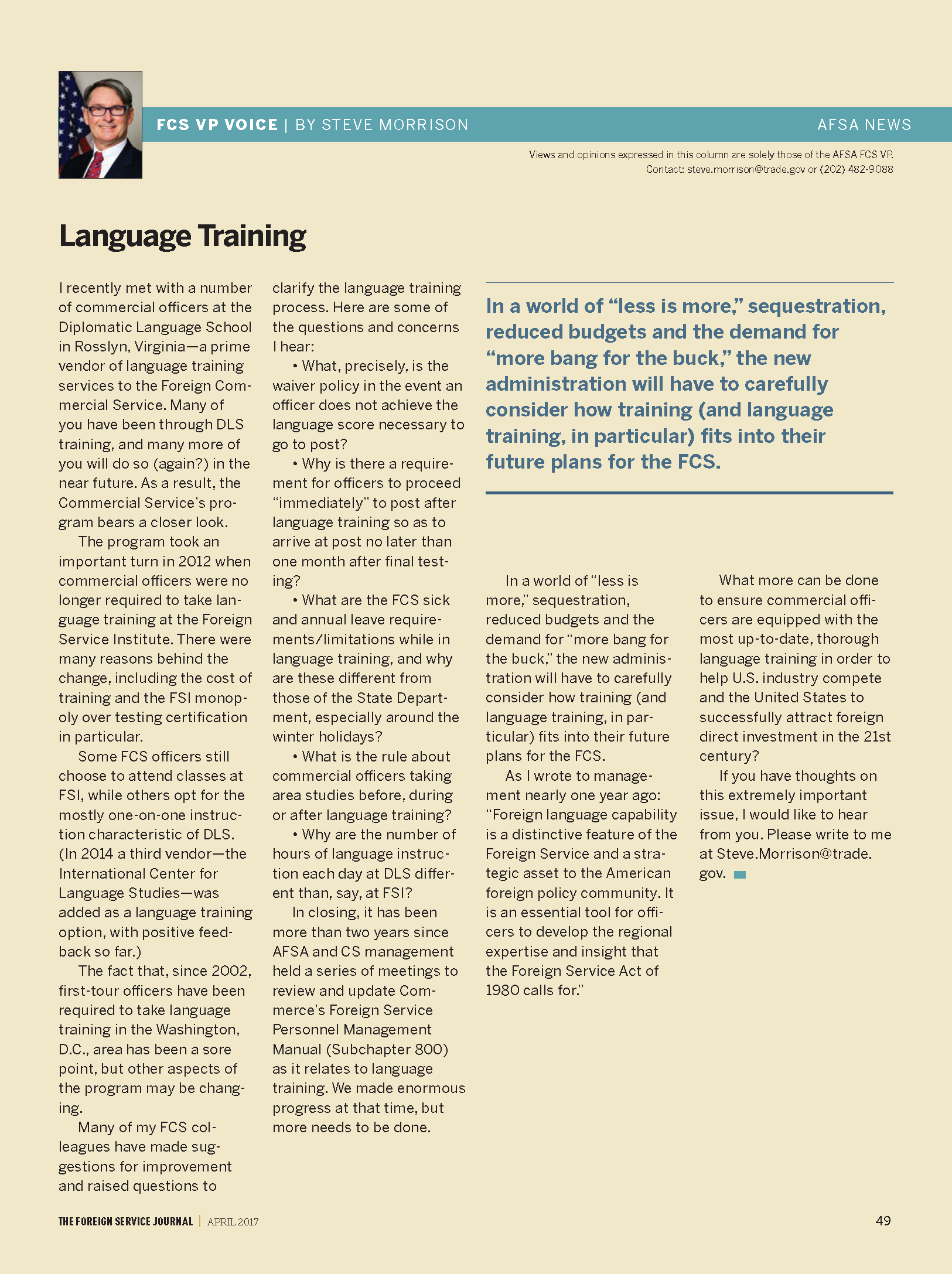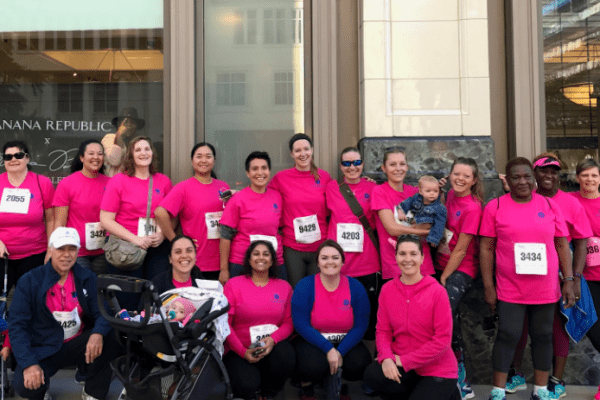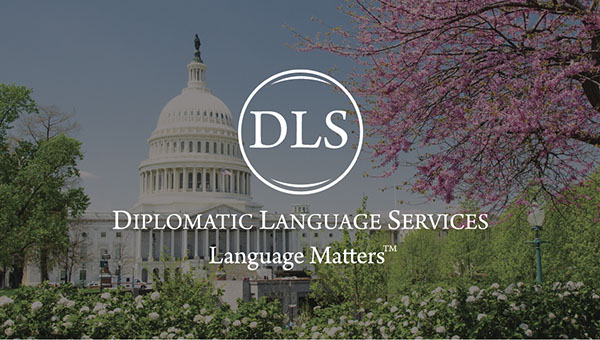FCS VP VOICE | BY STEVE MORRISON
Language Training
I recently met with a number of commercial officers at the Diplomatic Language School in Rosslyn, Virginia—a prime vendor of language training services to the Foreign Commercial Service. Many of you have been through DLS training, and many more of you will do so (again?) in the near future. As a result, the Commercial Service’s program bears a closer look.
The program took an important turn in 2012 when commercial officers were no longer required to take language training at the Foreign Service Institute. There were many reasons behind the change, including the cost of training and the FSI monopoly over testing certification in particular.
Some FCS officers still choose to attend classes at FSI, while others opt for the mostly one-on-one instruction characteristic of DLS. (In 2014 a third vendor—the International Center for Language Studies—was added as a language training option, with positive feedback so far.)
The fact that, since 2002, first-tour officers have been required to take language training in the Washington, D.C., area has been a sore point, but other aspects of the program may be changing.
Many of my FCS colleagues have made suggestions for improvement and raised questions to clarify the language training process. Here are some of the questions and concerns I hear: •
- What, precisely, is the waiver policy in the event an officer does not achieve the language score necessary to go to post? • Why is there a requirement for officers to proceed “immediately” to post after language training so as to arrive at post no later than one month after final testing?
- What are the FCS sick and annual leave requirements/limitations while in language training, and why are these different from those of the State Department, especially around the winter holidays?
- What is the rule about commercial officers taking area studies before, during or after language training?
- Why are the number of hours of language instruction each day at DLS different than, say, at FSI?
In closing, it has been more than two years since AFSA and CS management held a series of meetings to review and update Commerce’s Foreign Service Personnel Management Manual (Subchapter 800) as it relates to language training. We made enormous progress at that time, but more needs to be done.
In a world of “less is more,” sequestration, reduced budgets and the demand for “more bang for the buck,” the new administration will have to carefully consider how training (and language training, in particular) fits into their future plans for the FCS. As I wrote to management nearly one year ago: “Foreign language capability is a distinctive feature of the Foreign Service and a strategic asset to the American foreign policy community. It is an essential tool for officers to develop the regional expertise and insight that the Foreign Service Act of 1980 calls for.”
What more can be done to ensure commercial officers are equipped with the most up-to-date, thorough language training in order to help U.S. industry compete and the United States to successfully attract foreign direct investment in the 21st century? If you have thoughts on this extremely important issue, I would like to hear from you. Please write to me at Steve.Morrison@trade. gov.
https://www.afsa.org/sites/default/files/april2017fsj.pdf

http://www.afsa.org/sites/default/files/april2017fsj.pdf



